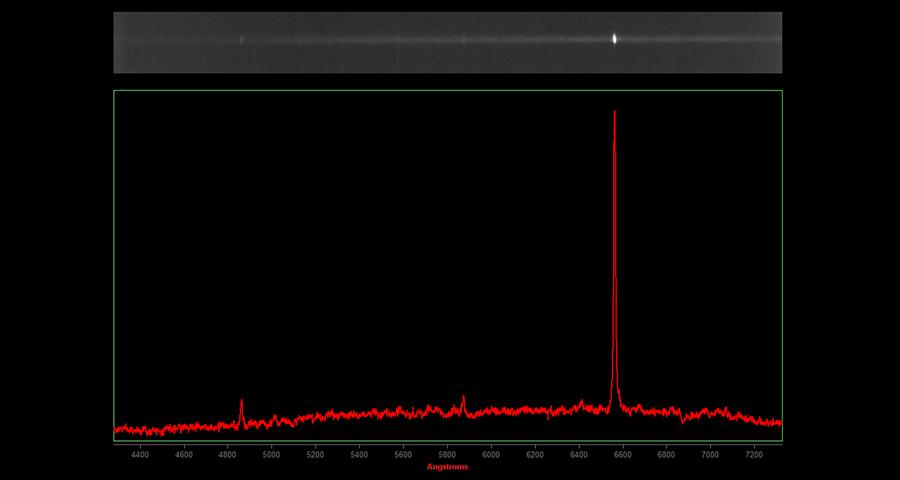Spectra of Planetary Nebulae
| Nebula | PK048+04.1 | RA (J2000) | 19 03 46.8 |
| Constellation | Aquila | Dec | +16 26 16.9 |
| Size (arcsec) | stellar | Other names | PK 048+04.1 |
| Mag (V) | 11.7 | V1413 Aql | |
| Surface Brightness (mag/arcsec2) | n/a | K4-12 |

HAG 24" RC, SBIG STF-8300M, LHires III, 300gr/mm, 1800 sec, 2021-05-31@23:34
Symbiotic Star. Hydrogen emission and helium at 5876Å DSS2 image, 10 arcmin square

A white dwarf or neutron star with a red giant companion will accrete material from the companion onto its surface
and if this interaction can be detected spectroscopically it is termed a Symbiotic Star. In the majority of such
systems known, nuclear reactions take place in the accreted material at the surface the white dwarf and the resulting
high temperature (100,000 K) allows ionization of a large fraction of the cool giant's wind producing an emission spectrum.
156 / 210 (pg 95)